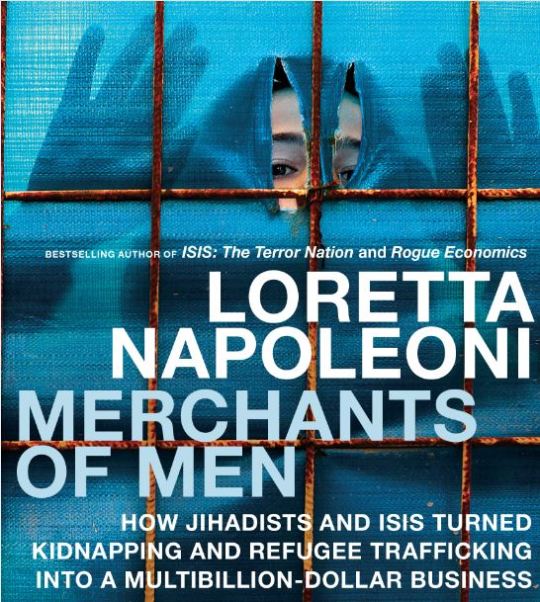This Monday I attended a special event in Budapest organized by the Hungarian publisher of Loretta Napoleoni’s latest book “Merchants of Men:
How Jihadists and ISIS Turned Kidnapping and Refugee Trafficking into a Multi-Billion Dollar Business”, that just came out in Hungarian.

Loretta Napoleoni talked about the essence of the book which is the evolution of the financing of terrorist organizations. After 9.11 ransom paid by foreign governments for their kidnapped citizens became the most important source of funding for terrorist organizations throughout most the Arab world. It involved kidnapping of tourists, journalists and aid workers in countries like Libya (where officials actively cooperated), and also pirates hijacking foreign ships at the Somali coasts kidnapping entire crews for ransom.
Since the beginning of the Syrian civil war, the same thing happened in Syria, where a secondary market emerged. Kidnappers, who handled the “easy part” of the kidnapping itself not having the means to keep the hostage and to negotiate for ransom, sell the hostages to other interested parties. Most notably, ISIS, in whose hands the hostage many times worth more dead than alive – think the publicly beheaded journalists and aid workers.
This source of funding is not sustainable on the long run though, because foreigners stopped visiting these places altogether and ships are now heavily guarded near the Somali coasts. A new source had to be discovered so this is how refugees and migrants became the big business in all these places and human smuggling evolved as an industry.
Refugees pay hundreds of dollars just to be put on a ship that has literally like 50/50% chance to ever reach shore. If on top of that, they are promised to be transfered to a safe country in Europe with fake documents and all, the price reaches 10 000 dollars per person. One appaling data for me was that on the peak of the migrant crisis in 2015 the Caliphate made half a million dollars per day out of this business!
The book is based on lots of interviews with people affected: refugees and even smugglers talk about their lives and motivations. When asked what was the hardest part writing this book, Loretta Napoleoni’s answer was “finding out that humanity in Syria has died a long time ago”. She said what she saw and learned about the situation in Syria is similar to what older generations recount of the terrors of the world wars, and what we, reading about it in history books, were sure never to experience in our lifetimes.
She noted that the greatest tragedy of it all is that she met people like any of us, like a young woman who used to have a decent middle-class life, an apartment and a car in Aleppo, and now is forced to flee and beg foreign governments for refuge. “Nobody should be forced to leave their homes like that,” she said.
After a short talk about the book, the author took questions and signed copies. I can’t wait to read “Merchants of Men” in full, I might write a review once I get around to it.
The second part of the evening was a screening of the Oscar-nominated documentary “Fire at Sea” that showcases the life of the tiny Italian island, Lampedusa.
The basic theme of the film is the unlikely contrast between the still, incredibly slow life of locals on the island and the events that unfold right there at their shores. It shows rather graphic images of the rescuing of vessels that were never meant to cross an ocean with hundreds of people on board.
By the end of the movie, I developed a whole new layer of respect for the people working to rescue those ships, including coast guards, rescue workers, police officers, medical personnel, anybody. It must be inconcievably hard even just to watch these things going on on a daily basis, let alone taking an active part.
I highly recommend this documentary to everybody!

